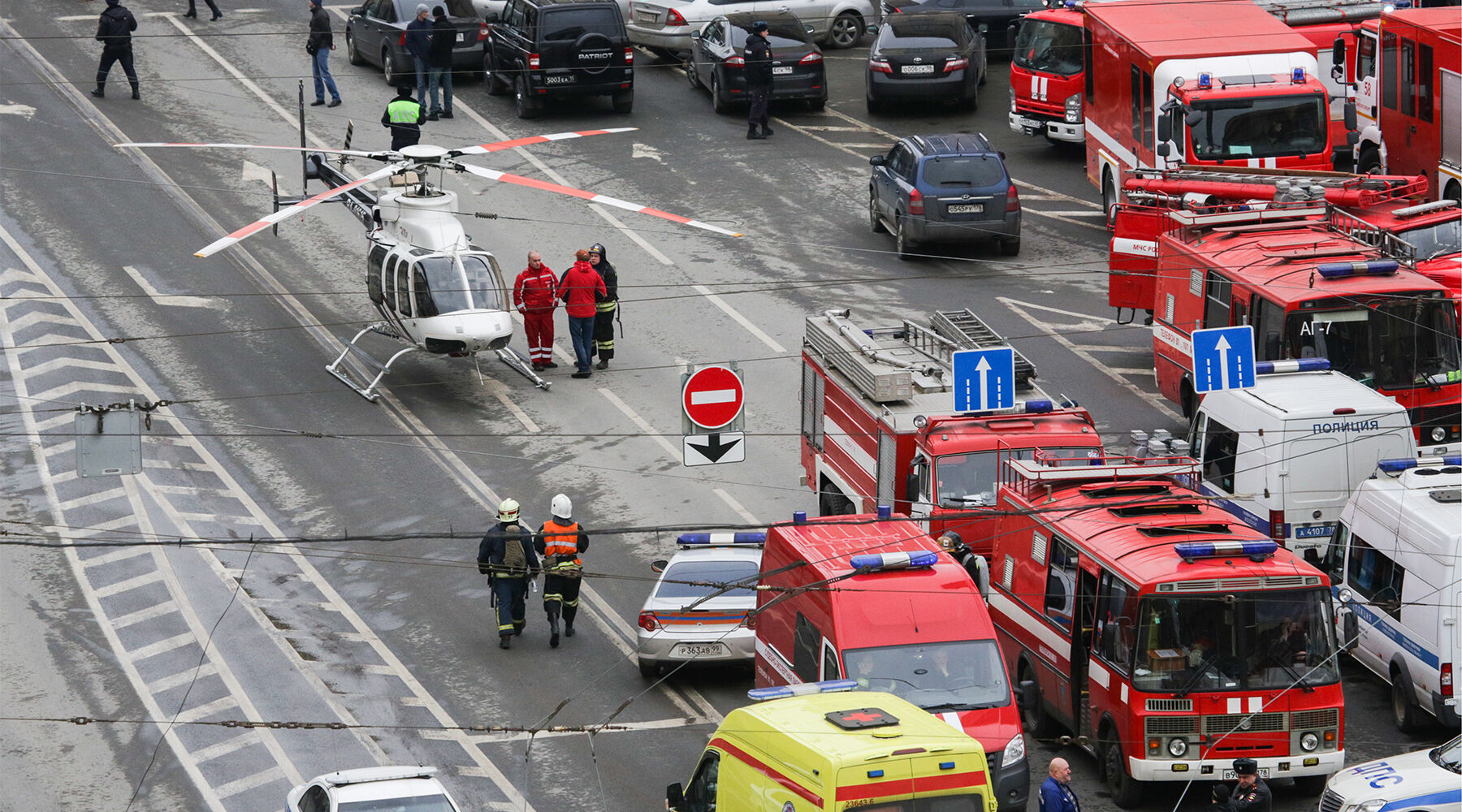
Is the Islamic State Behind the Metro Bombing in St. Petersburg, Russia?
A nail bomb killed at least 11 people and injured dozens of others on Monday at a metro station in the center of St. Petersburg, Russia. Reports that a second bomb was found undetonated nearby suggest that the attack could have been far deadlier. Russian Prime Minister Dmitry Medvedev said the bombing was a “terrorist act,” but so far, no group has claimed responsibility.
Russia has suffered numerous bombings over the years at the hands of homegrown jihadists. And since Moscow began intervening in Syria’s civil war in September of 2015, the Islamic State terrorist network has threatened several times to target Russia.
Last August, the Islamic State made good on those threats, claiming responsibility for a gun-and-ax attack that wounded two police officers near Moscow.
Just days before Monday’s attack, affiliates of the Islamic State began circulating this message, saying, “We will burn Russia.”
These threats, alongside Russia’s ongoing activity in Syria and other Middle Eastern nations, have convinced some experts that the Islamic State may have been behind Monday’s attack. Former MI5 intelligence officer Annie Machon said: “I’d suggest that this does have the hallmarks, potentially, of the isis-inspired-type attack. I say this particularly because of the intervention Russia made in Syria and freeing east Aleppo over the last few months. isis has been very vocal in saying that it would attempt to hit back at some point. That is one very strong possibility.”
Colin P. Clarke, a political scientist at the rand Corporation, said, “Russia is fast replacing the United States as the No. 1 enemy of al Qaeda, the Islamic State and other Sunni jihadist groups motivated by violent and puritanical Salafist ideology.” Clarke said, “Monday’s bombing in St. Petersburg might be only the beginning of a new terrorist wave.”
Few details about the attacker are known, but the unsophisticated nature of the detonated device suggests that the attack may have been carried out by untrained grassroots jihadists or untrained Russians of some other political leanings.
Whoever is guilty of the barbaric attack, acts of terrorism in Russia ultimately work to strengthen the grip of President Vladimir Putin. As Stratfor wrote:
After the Beslan siege [a terrorist attack in 2004], Putin pushed through a series of draconian laws, restricting the media and nongovernmental organizations, broadening the definition of terrorism, and empowering the security services. Among the laws was also a complete restructuring of the electoral system, giving Putin the power to appoint regional leaders and slanted voting procedures for the state Duma. The government, and its control over most aspects of the country, was vertically aligned under Putin. …
Putin initially rose on the strength of his promises to fight terrorism. In the face of another terrorist campaign, he cemented his position behind the results he achieved. And his support among the Russian people soared to heights not seen in a century. Putin emerged as the common thread of unity among the Russian people. The cult of Putin was sparked, and the era of Putinism began.
Monday’s bombing in St. Petersburg will be one more factor emboldening Putin to keep boosting security measures across Russia and to keep intensifying his crackdown on dissent.
To understand the significance of Putin’s tightening grip on power, watch Trumpet editor in chief Gerald Flurry’s recent Key of David episode:
